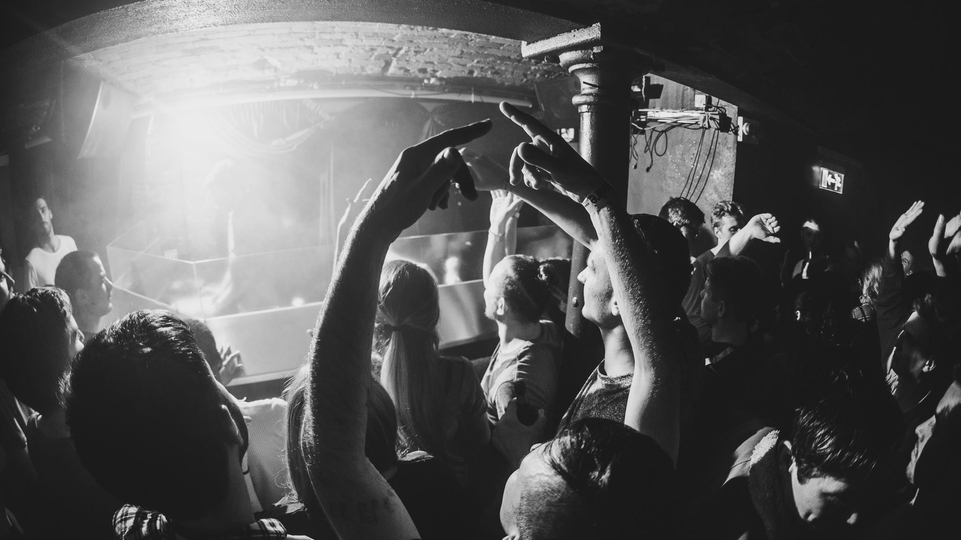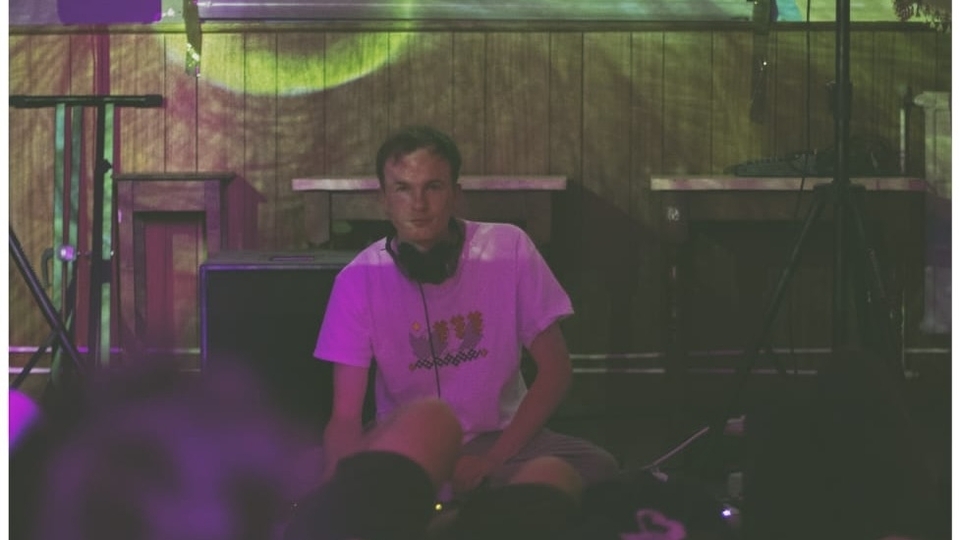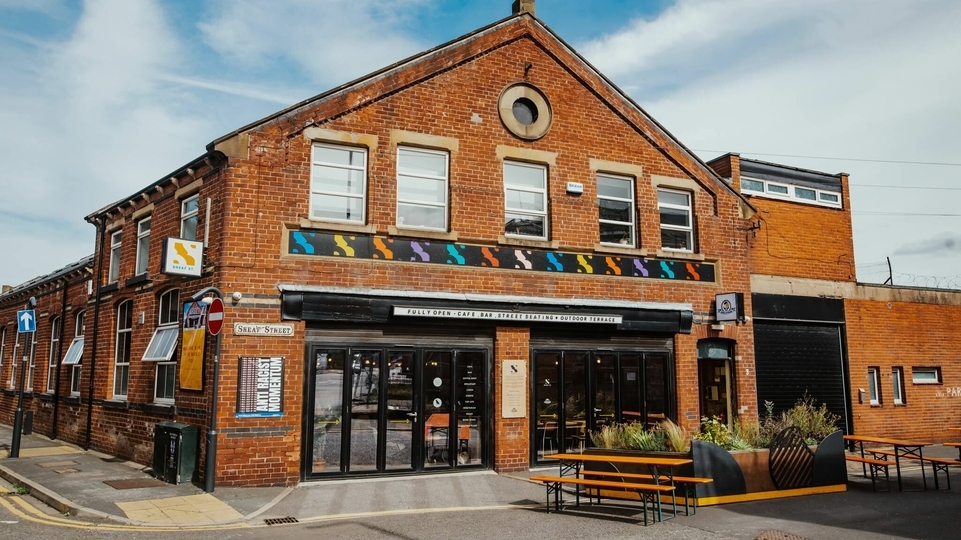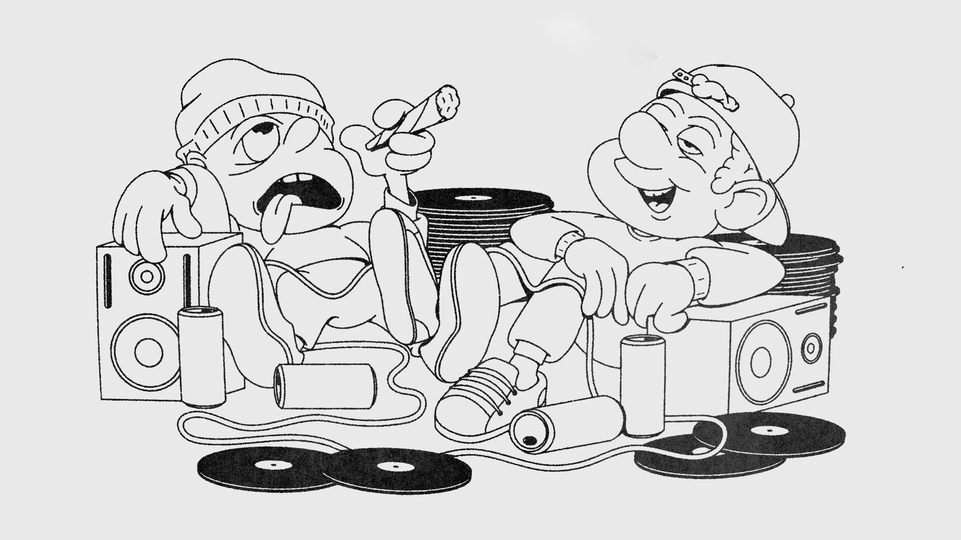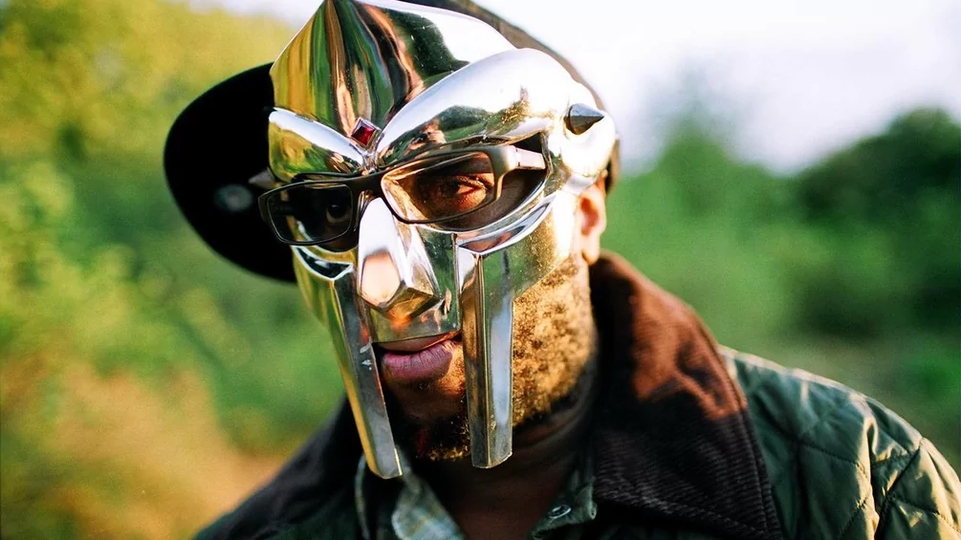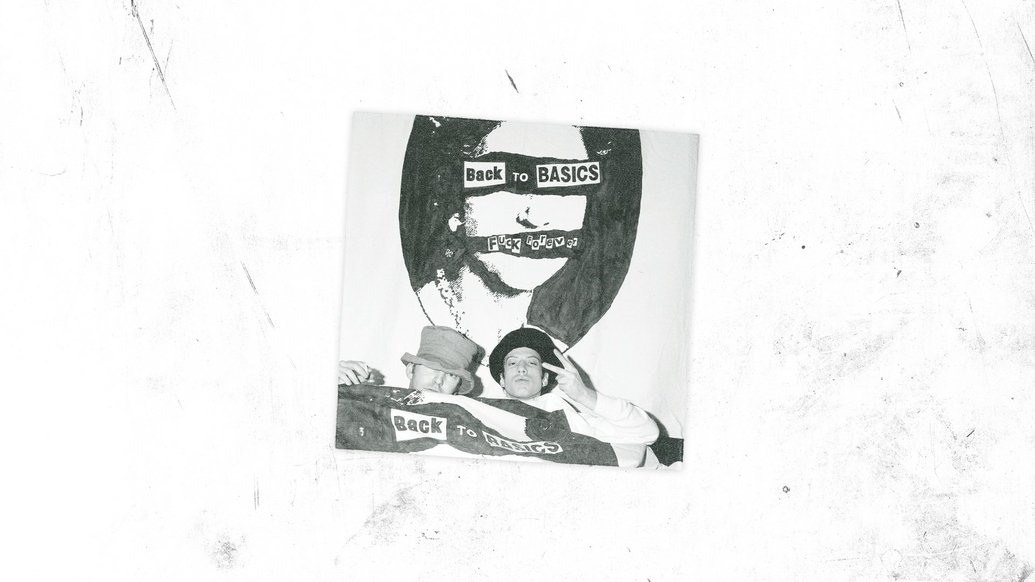
Back To Basics: the anarchic party that transformed Leeds into a clubbing destination
For 30 years, Dave Beer has presided over Back To Basics: the Leeds club event that has grown into a global institution thanks to its incredible atmosphere and resident DJs. DJ Mag talks to Dave at his home to learn about how it all started, his punk rock philosophy, and how he’s kept the club such a vital force for three decades
The world has many famous clubs and thousands of influential characters, but only the most iconic are inseparably linked. Larry Levan’s Paradise Garage, David Mancuso’s The Loft and Frankie Knuckles at The Warehouse are arguably the most well known. But as it celebrates its 30th birthday, Dave Beer’s Back To Basics deserves a special mention. Born on Saturday, 23rd November 1991 as a big fuck you to the increasingly commercial acid house scene, the party has retained its proud punk ethos for three complete decades.
“We thought it would last maybe six months,” says Dave Beer as he lights up a smoke. True to his ways, the Pontefract, West Yorkshire-born impresario was still in bed when DJ Mag arrived at his house at 2.30pm. “Sorry, I was up late painting,” he says, explaining that creating surrealist works of art has taken up ever more of his time in recent years.
A quick coffee perks him up. In no time, he’s regaling us with the sort of tales that will soon become a docufilm directed by Don Letts — one of Dave’s childhood heroes — and will be imminently documented in his long-awaited book, Excess All Areas. Of course, when you run a party whose motto is “two steps further than any other fucker”, you forget more stories than you remember. But there are still more than enough for 90 minutes of non-stop chat, including a recent one that involved Dave falling off his skateboard on the halfpipe in his garden, knocking his gold tooth out and seeing his dog eat it.
It’s impossible to tell the tale of Back To Basics without telling Dave’s own story. He was born to a working-class family, “but I’ve never actually worked, so I’m not sure what that makes me”. His mother was the first female referee on the World Championship snooker circuit. Back then in the ’80s, snooker was seriously rock ’n’ roll.
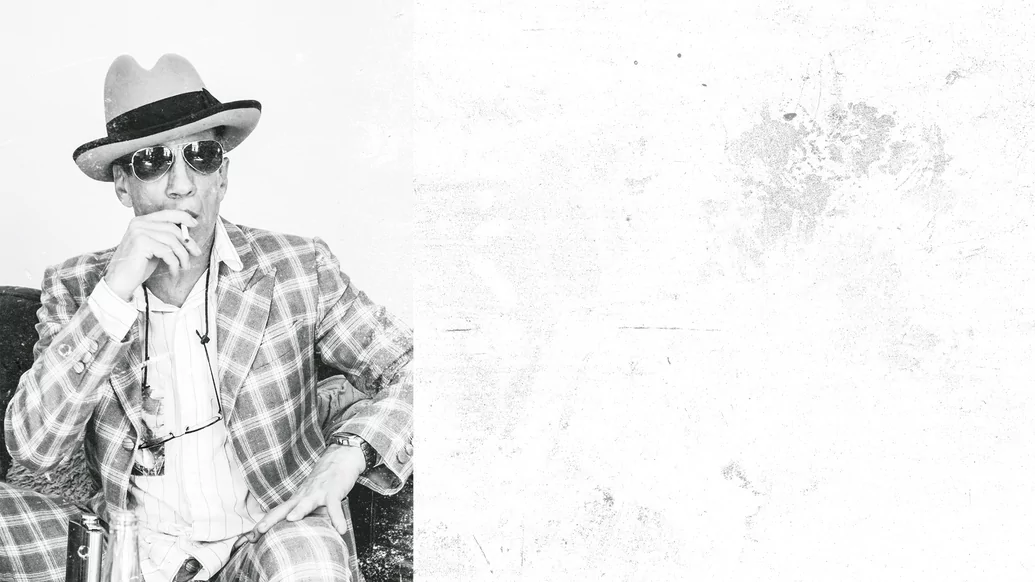
“Drugs and drink were everywhere, so my mum was used to that sort of thing,” recalls Dave, who then tells of the time his dad, a driver for snooker ace Jimmy White, once picked him up, took him to the local snooker hall and, because White was wearing a blonde wig, watched him hustle a load of lads out of some cash by clearing up the table while in disguise.
Dave’s early years were a rollercoaster. He was a kilt-wearing punk who followed The Clash and The Cure around the country, even once breaking into a gig through the band’s dressing room window. The young groupie’s persistence on the tour circuit earned him a legitimate job as a roadie and later tour manager for the likes of The Ramones and Sisters Of Mercy, and by the mid-’80s, he was on a stateside Def Jam tour with Public Enemy, LL Cool J and Run-D.M.C, which is where he found acid house. It was discovering those sounds that turned his world upside down. From then on, he made regular pilgrimages to The Haçienda and illegal warehouse parties.
When the authorities started clamping down on the warehouse scene, Dave decided to do his own thing. Along with old friend and art college peer Alistair Cooke, Dave started Back To Basics on the top floor of The Chocolate Factory, later renamed The Music Factory, a three-storey gay club on Lower Briggate in Leeds. Ralph Lawson famously played the first-ever record and remained a resident until just last year. “It was the right thing at the right time,” says Dave, rather downplaying it. In a matter of weeks, the 80-strong crowd of the opening night — all greeted personally by Dave — turned into queues of thousands of people. Dave would take cups of tea out to police who turned up, and the club’s famously unpredictable door policy made it an all the more desirable place to get into.
For the 20-odd years that Basics remained a weekly event, that door was managed by Dave’s friend Gary Lethbridge. “He was always the coolest kid around our way and cut everyone in Pontefract’s hair,” Dave says. “He always had a look, whether he was a mod or an English gent, and that was enough for me to know he was the man for the job.” Despite not allowing everyone in, Basics has always had a proudly friendly vibe, so those who were stopped at the door were given helpful advice over a shared cig, offered a drink or an umbrella if it was raining, and told to try again next week.
“We were terrible at times,” giggles Dave. He is sitting below a magnificent four-foot oil painting of himself, but for a better picture of who he really is, just know that when he bought a convertible Mercedes in the early days of Basics, he ended up feeling too self-conscious to drive it, so sold it.
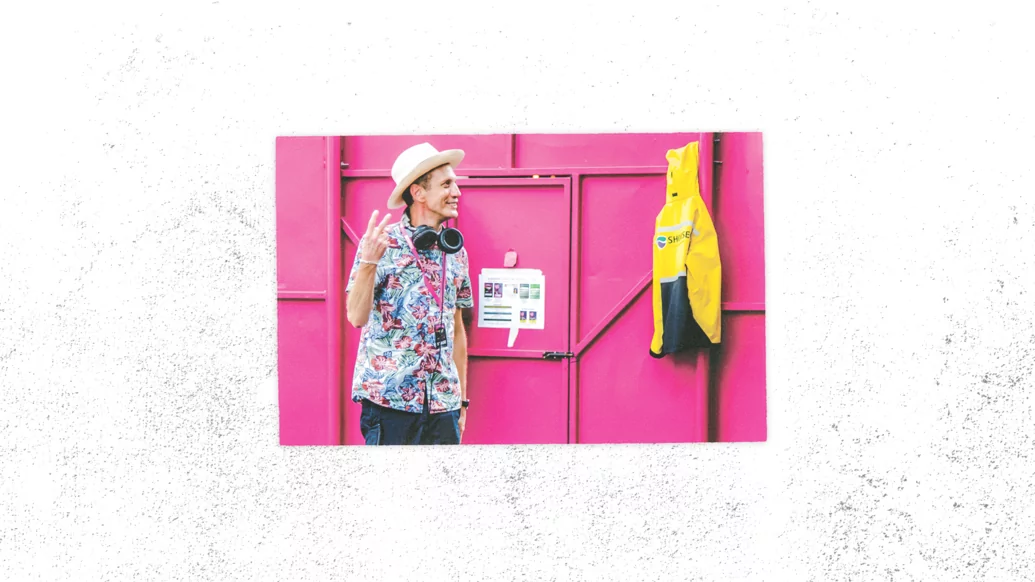
“We turned people away for all sorts of reasons, but we did it well, and we had to. For a couple of years, we were like Berghain is now. We were the Studio 54 of the UK. People came from all over the world to party with us, and we just wanted them to really express themselves and do their own thing without fear of ridicule or persecution. It was at a time when football violence was still around, so we had to keep them out.”
Dave still got regular death threats from those wanting a piece of his pie, be it the door money or whatever else. “People would hold gun fingers up to their head and say I was a dead man walking. I don’t know if I was really stupid or really brave, but we weren’t going to change. I was protecting the club. But it was more than a club, it was our family.”
That first year of Basics flew by and ultimately changed Dave’s life forever. In 1992, he and his late friend Alistair — who was tragically killed in a car accident in March 1993 — ended up at a sold-out Royal Albert Hall picking up the inaugural DMC award for Best Club. The gold disc proudly hangs on a wall above some decks in the corner.
“We had no respect for it whatsoever at the time. It was just a shiny surface to snort gear off, and that’s what it got used for that evening.”
The party always had a cutting-edge house sound, and over the years it has given UK debuts to the likes of Doc Martin, François K and Derrick Carter, as well as nurturing Daft Punk, Basement Jaxx and Groove Armada years ahead of them breaking through. But the party might be best known for having one of the most long-running and reliable resident teams of any party ever.
“Residents never really leave, we just add to the list,” says Dave. Many of them — such as Tristan Da Cunha, Paul Woolford, Denney, Frenchy and Josh Plews — graduated from being Basics regulars to resident DJs, meaning there is a real through-line that has kept the unique Basics spirit alive since day one.
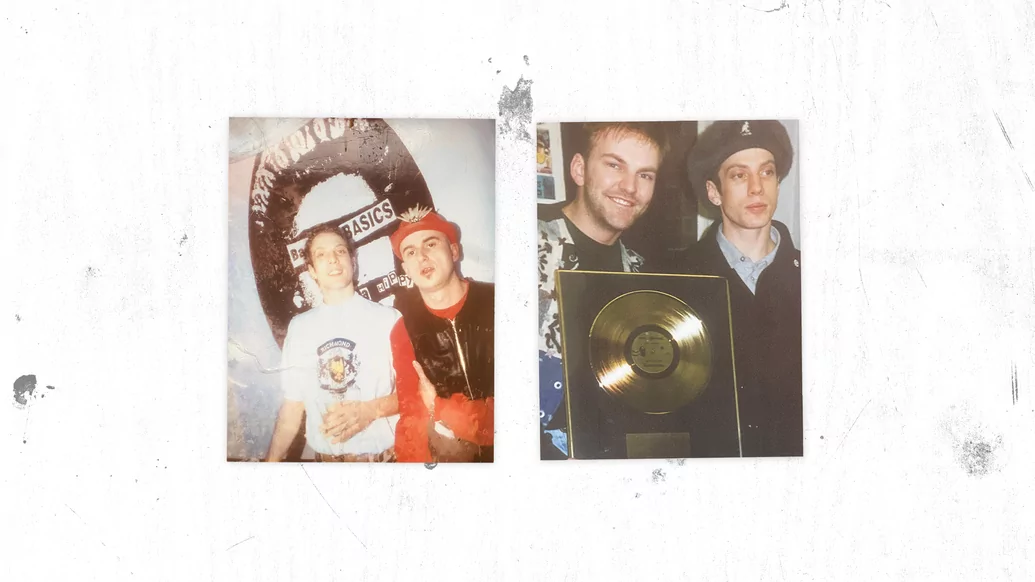
Dave’s own DJing has become more and more central to Basics over the years. “Instead of getting in trouble on the other side of the decks, I’m leading it from behind them now,” he laughs. Style-wise, he carries on where Ali left off, in that he likes to whip up the crowd, tease and please and never let up. It has made him a globe touring DJ in his own right; someone who has headlined major clubs and festivals all over the world with increasing frequency.
Others who have very much helped make Basics the global institution it is include James Holroyd, Buckley, Huggy, Burnski, new young Leeds expert Kepler, and of course the late, great Andrew Weatherall, who was a resident alongside DJ Harvey in the mid-’90s. Dave chokes up at the mention of Lord Sabre’s name.
“I was blessed to have him in my life, and Howard Marks. I’m still getting over their passing, to be honest. I spoke to Andrew the week before he died. We were laughing that we didn’t burn out or fade away, we were crumbling away, so had better style out this old age thing.”
As Dave puts it, Basics has put him in touch with “people from royalty down to those on the street”. He may have remixed the likes of David Bowie and Chrissy Hynde, but one of his fondest memories is meeting Adam Warner at a Basics party around 15 years ago — the now well-known and much-loved Leeds lad who walks with a stick owing to his cerebral palsy. The pair have been close ever since. After their first meeting Dave told Adam that if he ever wanted to get back into Basics, they had to jump out of an airplane together to raise money for charity. They went through with it, and raised £10,000.
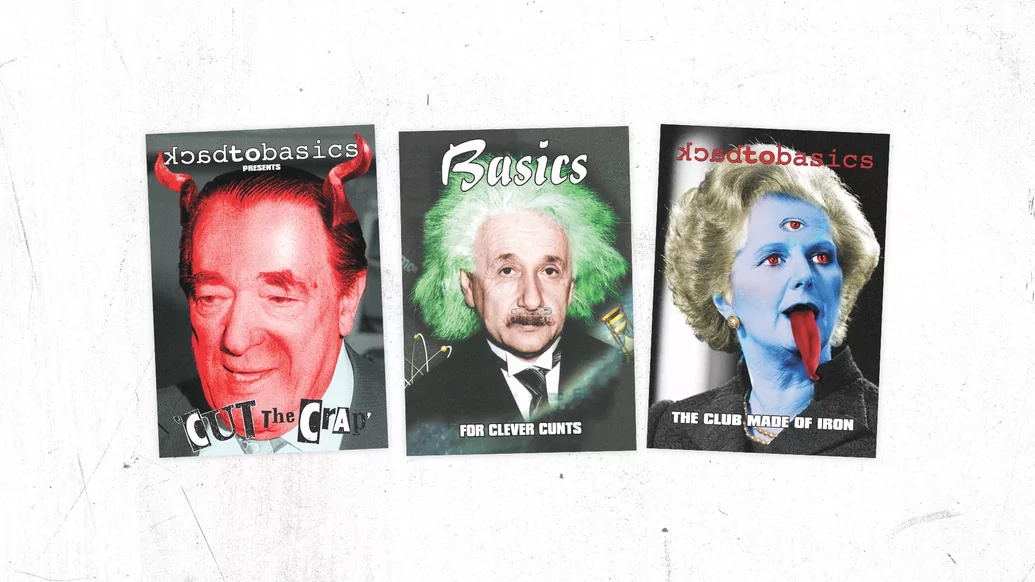
“The thought that we’re in a position to be able to help people as well as give them a good time, and to show them that if we can do it, you can do it, you can be whatever you want to be, it’s just remarkable.”
Dave reckons there have been around a thousand babies born as a result of meetings on the Basics dancefloor. But there are also many things which might have happened, but didn’t. Of course, this Peter Pan figure has no regrets. He’s happy he didn’t take any of the big sponsorship deals that were offered to him throughout the ’90s (and even says part of the reason the short-lived but influential Back To Basics label was shelved and only put out two albums despite many lucrative offers was that it was turning out to be too much like a “proper job”). We talk of others who started big club nights and then went on to run multi-national events companies. “Yeah, well, people still like me,” deadpans Dave.
Sponsorship or any infringement on independence was always so against the Basics ethos that the one and only time the party got in trouble with the council was when they did a poster campaign that saw them put one letter of the following on every lamppost on a main Leeds high street: “Back To Basics Is Sponsored By Fuck All”. “We apologised and told the council we wouldn’t do it again, which is the only lie I’ve ever told.”
In fact, one of the reasons Basics has been in so many different clubs over the years is down to Dave’s own impulse and devotion to doing things exactly how he wants. It is this slight element of self-sabotage that has kept Basics as a bastion of counter-culture. It was never about the money or the success, the fame or the profile, but just about good times and good people.
“If any club owner starts interfering with lineups or wanting more money, that's it,” says Dave, lighting another cig. “It could even be as small as them not wanting someone in that we did. I didn’t care, that would be it, we'd be off.”
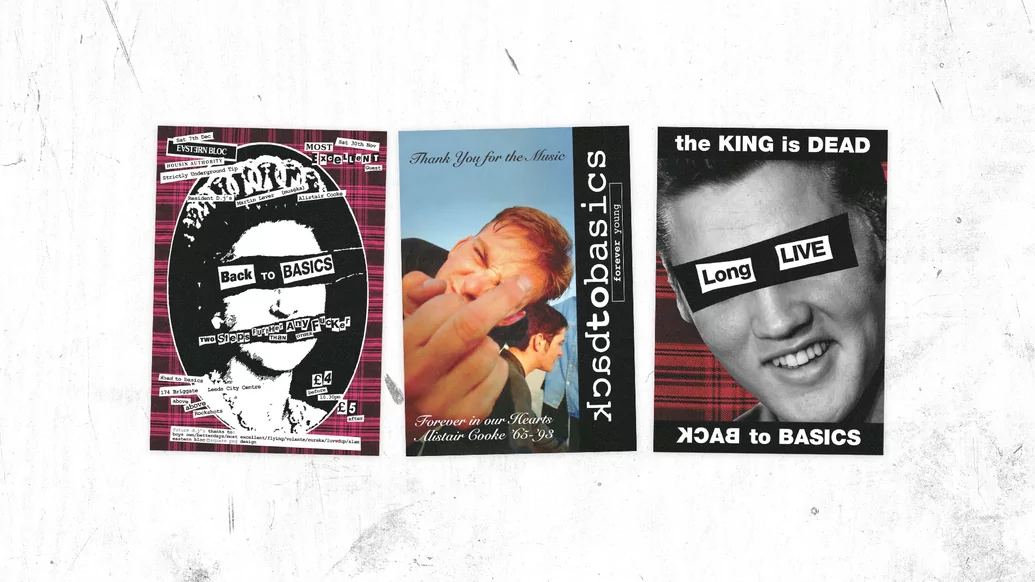
Basics has always dressed clubs in a flamboyant fashion and encouraged fancy dress at birthday events to get people out of themselves and to a place of zero inhibition. One year, the theme was oriental. On a whim, Dave grabbed the mic mid-set — as he often does — to announce a raffle. “I said the prize was a ticket to Hong Kong, went to the cloakroom and to grab a load of cloakroom tickets, and started selling them.” True to his word, Dave did actually end up buying the winner two flights to Hong Kong. “He got in contact years later saying the trip changed his life, and that he eventually ended up living there for five years.”
Dave and Ralph Lawson also made trips of their own in the early days. They would head to American music conferences and to clubs like Sound Factory and Limelight, soaking up the vibes of the parties with a view to bringing back what they saw to the UK.
“I don’t think I’ve ever been the same again after some of those parties,” laughs Dave. “They’d call it market research these days, but we were just having a good time, using some of the money we’d got to put back into making Basics as good as it could be. There was no point saving it for a rainy day.”
Another thing that always stood Basics out was the flyers, or “free art for the masses” as Dave puts it. Today our lives are dominated by brand imagery, by personal imagery on social media, and by giant digital billboards. Everyone is desperate to be unique, but it came naturally to Basics. “I went to art school, it’s always been in me,” says Dave. The now-iconic flyers have included things like The Last Supper — a picture of all the residents sat at a long table in front of a stained glass window, with Dave as Jesus in the middle.
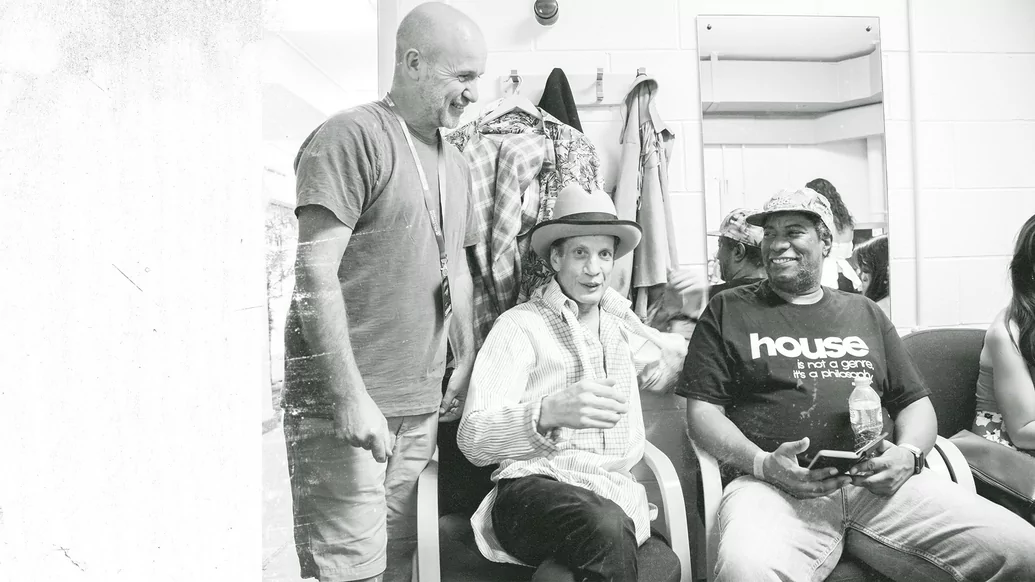
There have been the heads of everyone from Margaret Thatcher to Robert Maxwell to the Queen emblazoned with the “two steps further” slogan; dog turds being sliced in two with the words “cut the crap”, and images of Billy Casper —- the lead character in Kes, a cult film about working-class life in South Yorkshire — next to declarations like “A Northern Institution”. The flyers are socially and politically aware reactions to the times.
“We’ve had the odd stiff letter, which means we achieved our objective of getting noticed,” says Dave. “I knew straight away the Queen’s head would create the fuss it did.” With its raw, Jamie Reid-influenced DIY aesthetic, this design was totally the opposite to the more polished flyer trends of, for example, the M25 raves, which were all about serene sunrise images and a more slick design.
Despite the outlier status of Back To Basics, its cultural value to Leeds has always been recognised. In no uncertain terms did the party raise the city’s profile in the early ’90s. Arguably, it brought about the wealth of investment that followed, and was the start of the city’s long transformation into the cultural hub it is today. Though not one to dwell on the past or his own personal success, Dave fondly remembers 2017 and the first of three consecutive years of concerts in Millennium Square with a full symphonic orchestra playing Back To Basics classics. He has also been given the keys to the city and is in Leeds City Museum for his efforts, so says he will keep on going as long as he feels the urge.
“None of it was ever on purpose. The plan has always been, ‘there is no plan’,” he says.
With that, Dave is off to dress a club in Halifax for an upcoming party. Then, it is to the grand 30th celebrations at The Warehouse, a club with its own rich history as the first to have DJs mixing records rather than MCs talking over transitions. The birthday theme this year was prohibition. Back then, all people wanted was a bit of beer in their life. Little has changed.
